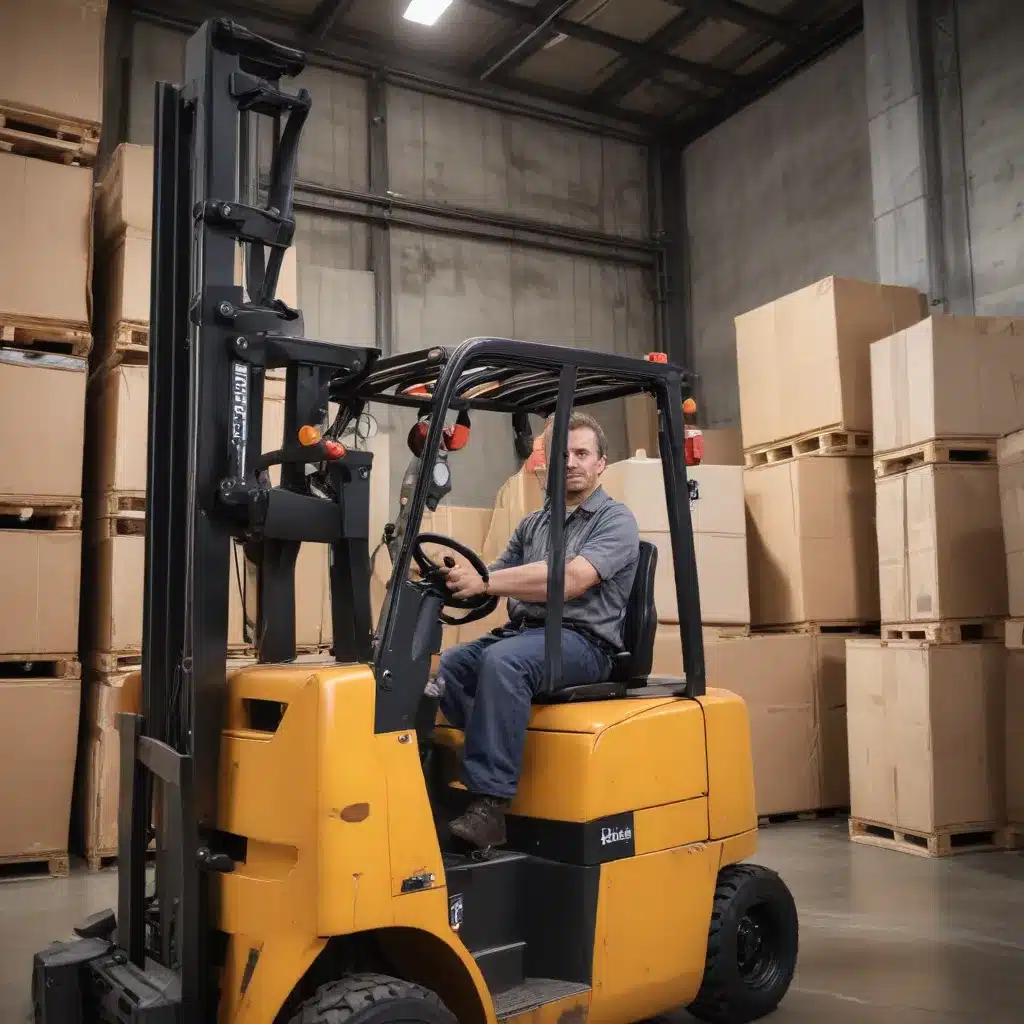
Navigating the High-Stakes World of Forklift Operations
As a seasoned industry expert in forklifts, warehousing, and logistics, I’ve seen my fair share of high-pressure situations that require quick thinking and effective problem-solving skills. When the stakes are high, and the safety of your team and equipment is on the line, it’s critical that forklift operators have a solid grasp of crisis response strategies and decision-making techniques.
In this comprehensive guide, we’ll dive deep into the complex world of forklift operator decision-making, exploring practical tips and in-depth insights to help you navigate even the most challenging scenarios. Whether you’re dealing with equipment malfunctions, unexpected obstacles, or difficult coworkers, you’ll walk away with the knowledge and confidence to tackle any problem head-on.
Recognizing the Signs of a Crisis Situation
The first step in effectively managing a crisis is being able to identify when one is brewing. As a forklift operator, it’s crucial to stay vigilant and attuned to the subtle signs that something is amiss. These can include:
- Sudden changes in equipment performance or behavior
- Unexpected obstacles or hazards in the work environment
- Heightened tension or conflict among team members
- Deviations from standard operating procedures or safety protocols
By staying alert and proactively monitoring your surroundings, you’ll be better equipped to recognize potential problems before they escalate into full-blown crises.
Developing a Crisis Response Mindset
When a crisis situation arises, the key to effective decision-making is maintaining a clear, level-headed mindset. This can be easier said than done, especially in the heat of the moment, but it’s a crucial skill to cultivate. Here are some strategies to help you develop a crisis response mindset:
1. Stay Calm and Focused
When faced with a high-pressure situation, it’s natural to feel a surge of adrenaline and anxiety. However, it’s essential to take a deep breath, slow down, and resist the urge to panic. By remaining calm and focused, you’ll be better able to assess the situation objectively and make rational, informed decisions.
2. Prioritize Safety
Your top priority in any crisis situation should be the safety of yourself, your team, and your equipment. This means following established safety protocols to the letter, even if it means deviating from your original plan. Remember, the well-being of your crew and the integrity of your machinery should always come first.
3. Gather and Analyze Information
Before taking any action, take a moment to gather as much information as possible about the situation at hand. This can include checking equipment diagnostics, consulting your team members, and observing the work environment. By gathering and carefully analyzing this information, you’ll be better equipped to make an informed decision.
4. Communicate Effectively
Clear, concise communication is crucial in a crisis situation. Ensure that you’re relaying important information to your team in a way that is easily understood, and be open to receiving input and feedback from your colleagues. Effective communication can help minimize confusion and ensure that everyone is on the same page.
Strategies for Effective Decision-Making
Once you’ve developed a crisis response mindset, it’s time to put it into practice. Here are some proven strategies to help you make effective decisions in high-pressure situations:
1. Weigh the Risks and Benefits
When faced with a difficult decision, take the time to carefully weigh the potential risks and benefits of each course of action. Consider both the short-term and long-term implications of your choices, and don’t be afraid to seek input from your team or supervisors.
2. Rely on Your Training and Experience
As a forklift operator, you’ve likely undergone extensive training and have accumulated a wealth of on-the-job experience. During a crisis, draw on this knowledge to guide your decision-making process. Trust your instincts and the skills you’ve honed over time.
3. Remain Flexible and Adaptable
Even the best-laid plans can go awry in a crisis situation. As such, it’s essential to remain flexible and adaptable, ready to pivot your approach as needed. Be willing to modify your initial strategy or try a different solution if the first one doesn’t work.
4. Delegate and Empower Your Team
In a high-pressure situation, you can’t do it all alone. Delegate tasks and responsibilities to your team members, empowering them to take ownership and contribute to the problem-solving process. By leveraging the collective expertise and skills of your crew, you’ll be better equipped to navigate the crisis.
Fostering a Culture of Continuous Improvement
Effective crisis response and decision-making aren’t skills that develop overnight – they require ongoing practice, reflection, and a commitment to continuous improvement. As a forklift operator, it’s essential to:
- Regularly review and refine your crisis response protocols
- Seek out training opportunities to hone your decision-making skills
- Encourage open communication and collaboration within your team
- Embrace a growth mindset, always looking for ways to enhance your capabilities
By cultivating a culture of continuous improvement, you’ll not only be better prepared to handle future crises but also drive innovation and excellence within your organization.
Conclusion: Empowering Forklift Operators to Thrive Under Pressure
In the fast-paced, high-stakes world of forklift operations, effective decision-making and crisis response skills are essential. By developing a crisis response mindset, leveraging proven strategies, and fostering a culture of continuous improvement, forklift operators can navigate even the most challenging scenarios with confidence and proficiency.
Remember, the decisions you make in the heat of the moment can have far-reaching consequences, both for your team and your organization. Embrace the responsibility that comes with your role, and commit to being the best forklift operator you can be. With the right mindset and the right tools, you’ll be well on your way to mastering the art of crisis management and problem-solving.
For more information on forklift reviews, safety guidelines, maintenance, and industry trends, be sure to visit Forklift Reviews. Together, let’s elevate the standards of excellence in the forklift industry and keep our workplaces safe, productive, and innovative.

